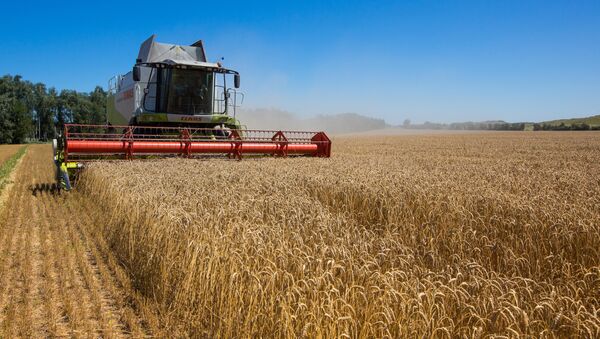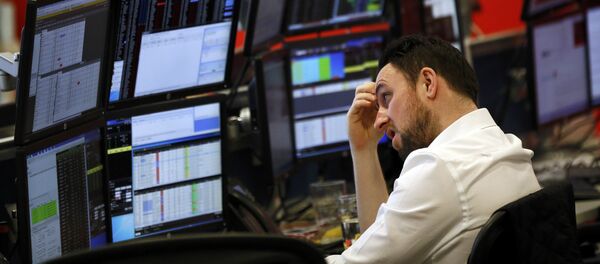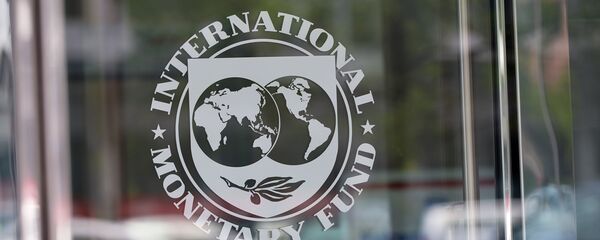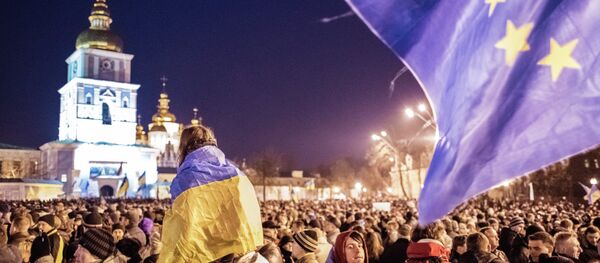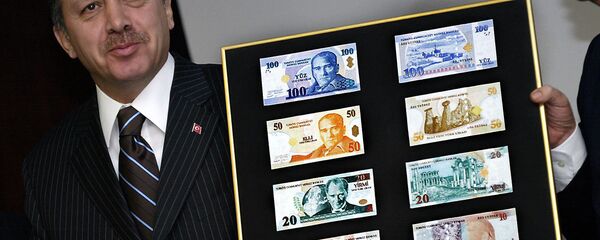"The 'barrel' pulls the 'bushel' along with it. That is the logic of world commodity markets," the journalist explains, in a recent analysis published by independent Russian newspaper Svobodnaya Pressa. "Only upheavals in oil-producing areas and crop failures in major agricultural countries are capable of breaking the connection."
Moreover, "in terms of their dependence on commodities, the Russian and Ukrainian economies resemble one another, like twins. The difference is that our major export product is oil, and that of our neighbors – wheat."
"Russia's GDP over these two difficult years has fallen by 3.6%, while Ukraine lost more than 20% of its GDP. And although a number of international institutions, including the IMF, predict that Ukraine will win back 2% this year, skeptics, on the contrary, predict further decline."
"The fact," Sitnikov suggests, "is that our neighbors face processes reminiscent of the crisis faced by Argentina after the default in 1999. But at that time the global macroeconomic picture was much healthier than it is today."
"Furthermore, in accordance with the memorandum on the IMF's Ninth Economic Review, the organization will reduce its lending to Kiev by two thirds. Some funds will be forthcoming via the EBRD, but these are just crumbs. In other words, there is no money for development."
Sitnikov recalled that "in 2014, big business in the US and the EU was eager to revive Ukraine's economy as a warning to Putin. However, senseless acts of cruelty and intimidation by right-wing thugs in Odessa and the Donbass have scared off potential investors. Today, 'there is no sense speaking about queues of investors lining up to open factories in Ukraine', Prikhodko writes. 'The break in economic ties with the [rebel-held Donbass] did not bring any political dividends.'…Whatever Western politicians may say, foreign businessmen have said 'no' to Banderite xenophobia."
"The new authorities in Kiev simply did not have enough common sense to benefit from the 'demonization of Putin', which in 2014 had become state policy for the majority of the world's leading economies. Now, the Poroshenko/Yatsenyuk government does not even recall that nearly all of America's leading companies had once been willing to implement their own 'Marshall' plans in Ukraine. The fact that Ukrainians live much worse today than they ever did under [ousted president] Viktor Yanukovych is entirely the fault of the current political elite."
In these circumstances, Sitnikov notes, "Ukraine's economy will have to focus on the production and sale of its basic products – grains, oilseeds and ferrous metals. The problem is that the main buyers of Ukraine's agricultural sector are the oil-producing countries of the Middle East, which have introduced austerity in 2016."
Moving on, the analyst noted that "if we talk about metals, here again we find negative processes associated with the global excess in steelmaking capacity, which, according to Ernst & Young, reached 2.07 billion tons. In 2016, Ukrainian production, in all probability, will repeat the decline seen in 2014 and 2015, when production volume dropped by 17% and 16%, respectively."
Ultimately, citing the UniCredit Bank analysis, Sitnikov writes "that the situation in Ukraine will be able to stabilize only if the average price of a barrel of Brent oil sits at around $55.8. Only then, according to IMF estimates, is 2% GDP growth is possible…In short, Kiev should not gloat over the deterioration of the economic situation in Russia due to falling [energy] prices, and, figuratively speaking, should pray that the world oil market recovers."
Furthermore, "authorities non-interference in the ruble exchange rate has allowed Russia to maintain gold reserves totaling $371 billion. In addition, devaluation has allowed the export-oriented Russian economy to compensate for the effects of falling commodity prices, and allowed the government to maintain a budget deficit of about 3% of GDP without borrowing. If this trend continues, already by 2018 Russia will see the first internal reserves for project development, without which any talk of import substitution would be worthless."

